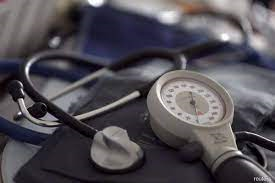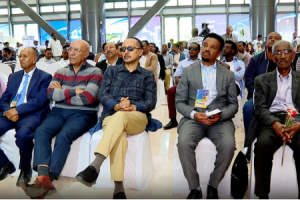
Africa faces significant challenges when it comes to health financing. Many countries in the continent struggle with limited resources, leading to inadequate healthcare services for their populations. Among other challenges, the lack of funding results in poor infrastructure, shortage of medical supplies, shortage of healthcare professionals. Thus, it requires prioritizing the sector to improve Africa’s health financing and ensuring better access to healthcare for its citizens.
No doubt, adequate funding is necessary to improve the quality of healthcare services available to the population. By investing in healthcare, African countries are expected to reduce the burden of disease, improve health outcomes, and enhance the overall well-being of their citizens.
Recently, Africa Centers for Disease Control and Prevention (Africa CDC) urged African governments to harness continent’s annual 95 billion USD in diaspora remittances to support national health priorities, as part of a broader push for sustainable and sovereign health financing.
Director General of the Africa CDC, Jean Kaseya (MD) has issued a bold call for African nations to reclaim ownership of their health systems, as the continent braces for a sharp decline in external health aid.
“Africa cannot continue outsourcing its health security,” Kaseya said during the unveiling of a new continent-wide health financing strategy.
For him, this strategy is not about aid—it is about ownership, adding that: “We are building a future where Africa invests in its people, drives its own health agenda, and responds to crises with speed, strength, and self-reliance.”
Africa CDC’s newly launched strategy comes at a critical time. Between 2021 and 2025, external health aid to Africa is expected to drop by a staggering 70%. At the same time, disease outbreaks have surged by 41% from 2022 to 2024, straining fragile health systems and threatening to undo decades of progress in disease control, maternal care, and epidemic preparedness.
In response, Africa CDC is partnering with African Union (AU) Member States to revise national health financing plans, increase domestic investment in health, and pilot innovative revenue-generating mechanisms that reflect the unique contexts of African countries, it was indicated.
The strategy calls on governments to meet their Abuja Declaration commitment of allocating at least 15% of national budgets to health. It also introduces new financing ideas, such as applying solidarity levies on airline tickets, alcohol, and mobile services, while exploring ways to harness the continent’s 95 billion USD in annual diaspora remittances to support national health priorities.
Moreover, blended finance tools will also play a key role in unlocking both public and private capital for critical investments in infrastructure, digital health, and the local production of vaccines and medical supplies. The broader aim is to reshape how African health systems are financed—less reliant on donors, and more driven by sustainable, homegrown solutions.
Accordingly, the initiative will roll out in two phases. From 2025 to 2026, the focus will be on updating national health financing plans in 30 countries, testing innovative revenue streams, and launching digital transparency dashboards to ensure public accountability. The second phase, from 2026 to 2030, aims to scale up successful models, with the goal of enabling at least 20 countries to sustainably finance 50% or more of their health budgets using domestic resources.
To measure progress and drive accountability, Africa CDC will introduce the African Health Financing Scorecard, a new tool to track implementation, align donor support, and improve efficiency in domestic spending.
The strategy has been endorsed by the African Union and is backed by growing political momentum for health sovereignty across the continent.
“This is a turning point for Africa,” said Kaseya. “With the right vision, coordination, and commitment, we can build health systems that are not only resilient but also truly African in design and leadership.”
As the world continues to face global health challenges, Africa CDC’s plan sets a new benchmark for homegrown solutions—placing African resilience, innovation, and ownership at the heart of a healthier, self-reliant future.
Meanwhile, Addressing the G20 High-Level Meeting on the African Continental Free Trade Area (AfCFTA) and pharmaceutical industrialization, CEO of AUDA-NEPAD Nardos Bekele, emphasized the potential of the AfCFTA to serve as a cornerstone for building a robust pharmaceutical industry in Africa.
Her remarks painted a vivid picture of both the urgency and opportunity facing Africa amidst a shifting global landscape.
She declared, “The era of business as usual cannot continue. Development must be reimagined, rooted in self-reliance, economic sovereignty, and transformative investments.”
The CEO called for a unified health ecosystem, addressing inefficiencies in procurement and regulation to meet the continent’s healthcare needs.
Despite the challenges, she celebrated Africa’s resilience and innovation citing the continent’s response to the COVID-19 pandemic as a testament to its collective strength. From drone delivery systems in Rwanda to expanding telemedicine in Kenya, Africa has demonstrated its capability to address local health needs creatively.
AUDA-NEPAD’s Southern Africa Network for Biosciences (SANBio) has been pivotal in advancing natural African traditional medicine. Collaborative efforts between universities, science councils, and pharmaceutical companies have already led to significant developments.
In her address, Nardos outlined AUDA-NEPAD’s strategy to industrialize Africa’s pharmaceutical sector.
This agenda extends beyond medicine production, aiming to create a continental economy rooted in dignity, resilience, and justice.
Key initiatives include the 24 Priority Medical Products Initiative, which focuses on scaling up domestic production of critical medicines, and the African Medicines Regulatory Harmonization Program (AMRH), which has streamlined regulatory processes to enable cross-border trade under AfCFTA.
Nardos also highlighted the Program for Investment and Financing in Africa’s Health Sector (PIFAH), aimed at mobilizing resources, fostering innovation, and advancing African-led medical discoveries.
“Africa cannot produce at scale if buyers are fragmented, and procurement is unpredictable,” she cautioned, endorsing the Africa CDC-led African Pooled Procurement Mechanism.
Nardos called on political leaders, financiers, and stakeholders to unite in aligning health and industrial agendas.The CEO concluded by aligning her vision with South Africa’s G20 Presidency theme of “Building towards an inclusive and sustainable recovery.” She urged collective action to ensure that Africa’s health solutions are driven by African ingenuity and industry.
“This is our moment to ensure that the value chains powering Africa’s growth are rooted in our innovation,” she declared, leaving the audience with a resounding sense of urgency and purpose.
In sum, broadening health financing in Africa is essential for improving access to quality healthcare services for all. By implementing strategies such as increasing government spending, fostering public-private partnerships, promoting health insurance schemes, and leveraging international support, African countries can make significant strides in overcoming the challenges they face in the healthcare sector.
BY TEWODROS KASSA
THE ETHIOPIAN HERALD FRIDAY 25 APRIL 2025





